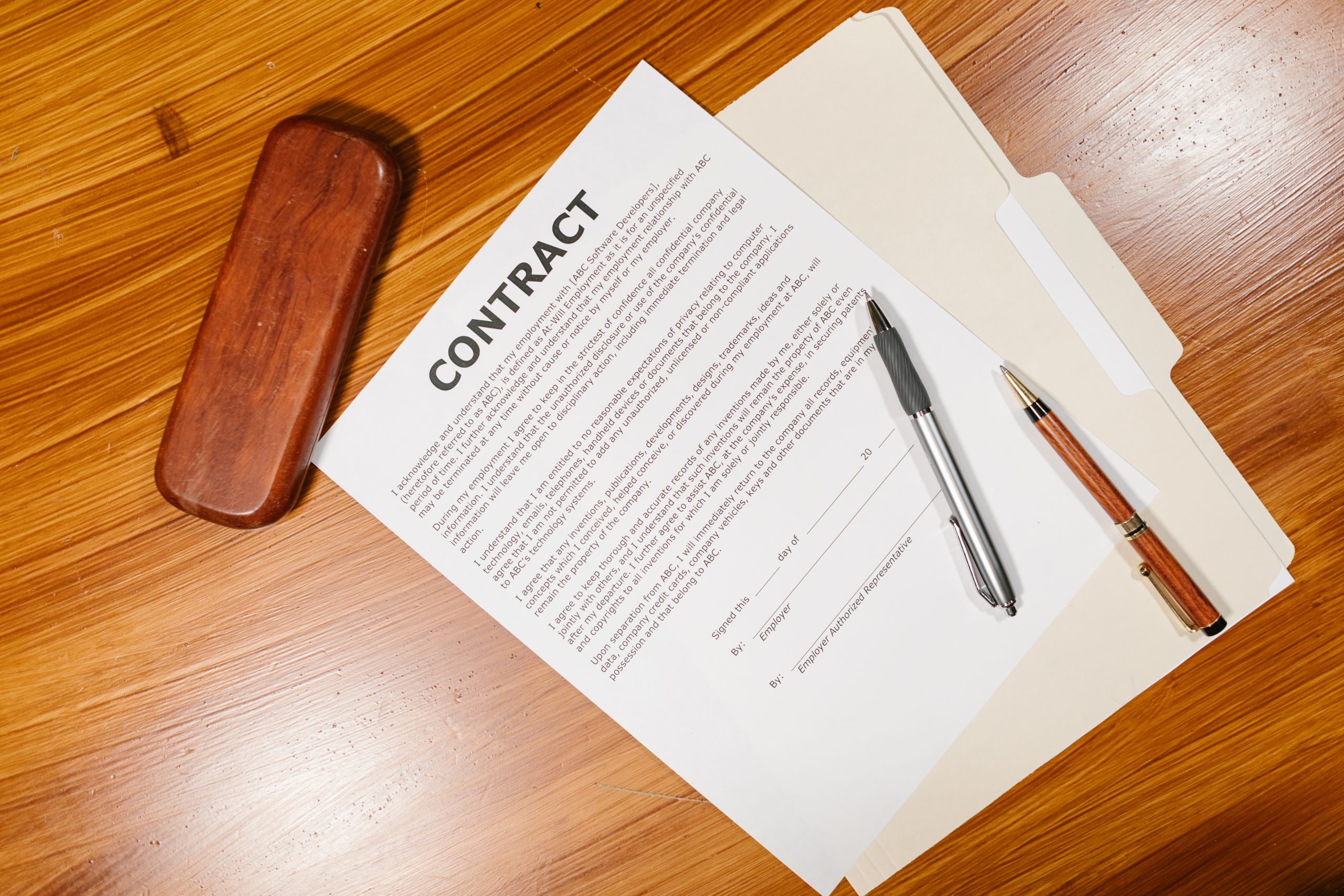Are you considering getting married but want to protect your assets? Look no further than our Prenup Lawyer in Eagle Mountain, Utah. We understand that discussing the possibility of a prenuptial agreement can be a sensitive topic, but it’s important to have a plan in place. Our experienced lawyer is here to reassure you and guide you through the process, addressing any legal concerns you may have. With our expertise, we can help create a customized prenuptial agreement that fits your unique needs and protects your interests. Don’t wait, take the next step and give us a call today for more information.
Prenuptial Agreements: Protecting Your Assets in Eagle Mountain, Utah
Are you considering getting married in Eagle Mountain, Utah? While marriage is a beautiful and exciting milestone, it’s essential to consider the legal aspects that come with it. One crucial aspect you should not overlook is a prenuptial agreement. In this comprehensive article, we will walk you through the ins and outs of prenuptial agreements, why you need a prenup lawyer, how to find the right lawyer in Eagle Mountain, and the steps involved in drafting a prenuptial agreement. Plus, we’ll address common mistakes to avoid, ensure enforceability of your prenup, and provide answers to frequently asked questions.
Understanding Prenuptial Agreements
What is a Prenuptial Agreement?
A prenuptial agreement, also known as a prenup, is a legal contract entered into by a couple before they get married or enter into a civil partnership. This agreement outlines how their assets, debts, and other financial matters would be divided in the event of a divorce, separation, or death. It serves as a safeguard to protect each party’s interests and ensure a fair distribution of assets.
Purpose and Importance of Prenuptial Agreements
Prenuptial agreements serve multiple purposes and offer essential protections for both parties involved. They can:
- Clearly define each partner’s financial rights and responsibilities during the marriage.
- Protect assets acquired before the marriage, such as property, investments, and business interests.
- Clarify how assets acquired during the marriage, such as income and joint property, should be divided.
- Address potential conflicts and reduce the risk of lengthy and costly litigation in the event of a divorce.
- Provide a sense of security, openness, and trust within the relationship.
Key Elements of a Prenuptial Agreement
A well-crafted prenuptial agreement should include the following key elements:
- Disclosure of Assets: Both parties must fully disclose their assets, debts, and financial standings to ensure transparency.
- Property Division: The agreement should outline how the couple’s property will be divided in case of divorce or separation.
- Spousal Support: Specify whether spousal support or alimony will be awarded and the amount or conditions attached.
- Financial Responsibilities: Address how financial responsibilities, such as debts, mortgages, and expenses, will be handled during the marriage.
- Marital and Separate Property: Clearly distinguish between marital property, which is subject to division, and separate property, which remains with the original owner.
- Child Custody and Support: Note that child custody and support matters cannot be predetermined in a prenuptial agreement and must be decided during the divorce or separation process.
Why You Need a Prenup Lawyer
While it is possible to create a prenuptial agreement without professional assistance, hiring a prenup lawyer is highly advisable. Here’s why:
Legal Expertise and Advice
A prenup lawyer brings expertise and knowledge of family law and local regulations to the table. They can guide you through the intricacies of drafting a comprehensive and enforceable agreement. A lawyer will ensure that your rights are protected and that the agreement is fair and compliant with relevant laws.
Customization for Your Unique Situation
Every couple’s situation is unique, and cookie-cutter prenuptial agreements often fall short. By working with a prenup lawyer, you can tailor the agreement to match your specific circumstances. They will take the time to understand your concerns and goals, allowing them to include provisions that address your individual needs.
Avoiding Legal Pitfalls
Prenuptial agreements can be complex, and there are numerous legal pitfalls that can render them unenforceable. A prenup lawyer will be well-versed in identifying and avoiding these pitfalls. They will ensure that the agreement meets legal standards, mitigating the risk of future disputes or challenges.
Negotiation and Mediation Support
Negotiating the terms of a prenuptial agreement can sometimes be challenging, as it involves discussing sensitive issues. A prenup lawyer can act as a neutral third party, offering guidance and support during negotiations. They can also facilitate mediation sessions if conflicts arise, helping you and your partner find common ground and reach a mutually beneficial agreement.

Finding the Right Prenup Lawyer in Eagle Mountain
If you’ve decided to draft a prenuptial agreement, finding the right lawyer is crucial. Here are some steps to help you find a reputable prenup lawyer in Eagle Mountain:
Researching Local Prenup Lawyers
Start by conducting thorough research on prenup lawyers in Eagle Mountain. Look for law firms or attorneys who specialize in family law and have experience in drafting prenuptial agreements. Online directories, legal websites, and reputable business listings are valuable resources for finding candidates.
Evaluating Experience and Expertise
Once you have a list of potential lawyers, delve into their experience and expertise. Consider factors such as the number of years they have been practicing, their track record with prenuptial agreements, and any additional certifications or specializations. A lawyer with a proven history of successful prenuptial agreement cases is likely to provide quality service.
Consultations and Initial Assessments
Schedule consultations with a few prospective lawyers to discuss your situation and gauge their compatibility. During these meetings, inquire about their approach to drafting prenuptial agreements and their communication style. Pay attention to how well they listen to your concerns and how comfortable you feel discussing sensitive matters with them.
Client Testimonials and Recommendations
Don’t hesitate to ask for client testimonials or references from previous clients. Hearing about other clients’ experiences can give you insight into the lawyer’s professionalism, communication skills, and overall client satisfaction. Online reviews and ratings can also be helpful in making an informed decision.
The Benefits of Hiring a Prenup Lawyer
Working with a prenup lawyer offers numerous benefits beyond just legal advice. Here are some of the advantages you can expect:
Protection of Assets and Financial Security
By having a legally binding prenuptial agreement in place, you can protect your assets, including properties, investments, businesses, and inheritances. This protection provides financial security and peace of mind, especially if you have significant assets or anticipate changes in your financial circumstances.
Clarity and Communication in Relationship
The process of drafting a prenuptial agreement involves open and honest communication about your financial situation and expectations. This process promotes transparency and strengthens the overall communication within your relationship. By discussing sensitive financial matters beforehand, you can minimize potential conflicts down the road.
Mitigating Potential Conflicts and Disputes
Divorce or separation can be emotionally challenging, and navigating financial matters during such times can further exacerbate the situation. A well-drafted prenuptial agreement can minimize conflicts by clearly defining the division of assets, debts, and financial obligations. This pre-established framework reduces the likelihood of lengthy and contentious legal battles.
Peace of Mind for Both Parties
Having a prenuptial agreement in place can provide peace of mind for both you and your partner. It ensures that your interests and expectations are documented and legally binding. This peace of mind allows you to focus on building a strong and healthy relationship, knowing that your financial matters are well protected.
Steps to Drafting a Prenuptial Agreement
Drafting a prenuptial agreement involves several key steps. Here’s a breakdown of the process:
Open and Honest Discussions
Begin by having open and honest discussions with your partner about your financial situations, expectations, and concerns. This is an opportunity to address any fears, clarify misunderstandings, and find common ground.
Disclosure of Financial Information
Both parties must fully disclose their assets, debts, and financial details. This includes providing records of bank accounts, investments, properties, and any other relevant financial information. Full disclosure ensures transparency and helps create a fair agreement.
Identifying and Assessing Assets and Debts
Once all financial information is disclosed, identify and assess each party’s assets and debts. Categorize them as separate or marital property to understand their significance in the agreement. Consider factors such as value, ownership, and potential appreciation or depreciation.
Establishing Terms and Conditions
Next, determine the terms and conditions of the agreement. This includes addressing property division, spousal support, financial responsibilities, and any other pertinent matters. Work with your prenup lawyer to ensure that these terms comply with applicable state laws and are fair to both parties.
Drafting the Agreement
Based on the discussions and decisions made, your prenup lawyer will draft the prenuptial agreement. They will ensure that all necessary provisions and legal language are included, protecting both parties’ rights and interests.
Review and Revision Process
Once the initial draft is complete, review the agreement carefully, paying attention to every detail. Discuss any concerns or changes you’d like to make with your prenup lawyer. It is essential that both parties feel comfortable and confident with the terms outlined in the agreement.
Finalizing and Executing the Agreement
Once the revisions are made to everyone’s satisfaction, the final prenuptial agreement can be executed. Both parties should sign the agreement in the presence of a notary public or as otherwise required by local laws. Copies should be provided to each party, as well as stored safely for future reference.
Common Mistakes to Avoid
When drafting a prenuptial agreement, it’s crucial to avoid common mistakes that can render the agreement unenforceable. Here are some mistakes to be aware of and avoid:
Insufficient Financial Disclosure
Failure to fully disclose all financial information can lead to disputes and challenges in the future. It is essential to be transparent and provide accurate records of assets, debts, income, and expenses.
Unreasonable or Unenforceable Terms
Including unreasonable or unfair terms in the prenuptial agreement may render it unenforceable. It’s important to consult with a prenup lawyer to ensure the terms are legally sound and fair to both parties.
Lack of Independent Legal Counsel
Each party should have their own independent legal counsel to represent their interests and ensure a fair negotiation. Sharing the same lawyer can create conflicts of interest and weaken the enforceability of the agreement.
Signing Under Duress or Without Full Understanding
Signing a prenuptial agreement under duress or without a complete understanding of its terms can make it vulnerable to future challenges. It’s crucial to enter into the agreement voluntarily and with full knowledge of its implications.
Failure to Update or Review the Prenup
Circumstances change over time, and it’s essential to review and update the prenuptial agreement periodically or as significant life events occur. Failure to do so may result in an outdated agreement that does not reflect the current situation.

Ensuring Enforceability of Your Prenup
To ensure the enforceability of your prenuptial agreement, certain factors must be considered:
Full and Fair Disclosure
Both parties must provide full and fair disclosure of their assets, debts, income, and any other relevant financial information. Any attempts to conceal or misrepresent facts can jeopardize the enforceability of the agreement.
Voluntary and Informed Consent
Both parties should enter into the prenuptial agreement voluntarily and with a complete understanding of its terms. There should be no coercion, pressure, or undue influence from either side.
Independent Legal Representation
Each party should have their own independent legal counsel to review and advise on the agreement. This ensures that both parties’ interests are protected and that the terms are fair and legally sound.
No Coercion or Duress
The agreement must be executed without any signs of coercion, duress, or fraud. Both parties should willingly enter into the agreement of their own accord.
Proper Drafting and Execution
The prenuptial agreement should be properly drafted to comply with state laws and regulations. It should be executed following all legal requirements, including the presence of witnesses or notarization.
Modifying or Revoking a Prenuptial Agreement
Circumstances may change after a prenuptial agreement is executed, requiring modifications or revocation. Here’s what you need to know:
Circumstances for Modification
Prenuptial agreements can be modified if both parties mutually agree to the changes. Common reasons for modifications include changes in financial circumstances, birth of children, or changes in estate planning goals.
Process for Modifying or Revoking
To modify or revoke a prenuptial agreement, both parties must sign a written amendment or revocation. It’s crucial to work with a prenup lawyer to ensure that the modifications or revocations are legally valid and executed correctly.
Seeking Legal Assistance for Modifications
When seeking to modify or revoke a prenuptial agreement, it is advisable to consult with a prenup lawyer. They can guide you through the process, ensuring that your rights are protected, and the changes are enforceable.
Proving Invalidity or Unenforceability
In some cases, a party may seek to prove the invalidity or unenforceability of a prenuptial agreement. This can be done if there is evidence of coercion, fraud, or other factors that render the agreement unfair or illegal. Consult with a prenup lawyer to understand the requirements and steps involved in proving the agreement’s invalidity.

FAQs About Prenuptial Agreements
-
Are prenuptial agreements only for the wealthy? Prenuptial agreements are not exclusive to the wealthy. They can benefit individuals of various financial situations, as they provide clarity, asset protection, and mitigate potential conflicts for both parties.
-
Can child custody and support be included in a prenup? Child custody and support matters cannot be predetermined in a prenuptial agreement. These matters are determined based on the best interests of the child at the time of divorce or separation.
-
Can a prenuptial agreement be challenged or invalidated? Prenuptial agreements can be challenged or invalidated if there is evidence of coercion, fraud, lack of voluntary consent, or other legally recognized factors that make the agreement unfair or illegal.
-
Is it possible to draft a prenuptial agreement without a lawyer? While it is possible to draft a prenuptial agreement without a lawyer, it is highly recommended to seek legal assistance. A prenup lawyer ensures that the agreement is comprehensive, enforceable, and tailored to your specific needs.
-
Can a prenuptial agreement be changed after marriage? Prenuptial agreements can be changed after marriage through a written amendment. Both parties must agree to the changes, and the amended agreement must follow legal requirements for it to be enforceable.
-
Is a prenuptial agreement only applicable in the case of divorce? Prenuptial agreements are applicable not only in the case of divorce but also in the event of separation or death. They provide guidance and protection for asset distribution in various circumstances.
-
How far in advance should a prenuptial agreement be drafted? Prenuptial agreements should be drafted well in advance of the wedding or civil partnership ceremony. It is advisable to begin the process several months before the scheduled date to allow ample time for negotiations, revisions, and finalization.
-
What happens if a prenuptial agreement is not in place? If a prenuptial agreement is not in place, the division of assets, debts, and financial matters would likely be determined by the existing family law and court proceedings in the event of divorce or separation.
-
Can a prenuptial agreement address future property acquisitions? Yes, a prenuptial agreement can address future property acquisitions. It can outline how any future assets acquired during the marriage would be classified and divided.
-
Is it possible to challenge a prenuptial agreement after marriage? It is possible to challenge a prenuptial agreement after marriage, but the success of such a challenge depends on various factors, including the evidence presented, the specific circumstances, and applicable state laws.
Now that you have a better understanding of prenuptial agreements and their importance, it’s time to take the first step toward protecting your assets and ensuring financial security. Contact a reputable prenup lawyer in Eagle Mountain today and let them guide you through the process of creating a comprehensive and enforceable prenuptial agreement tailored to your unique situation. Call [Phone Number] now and take control of your future.